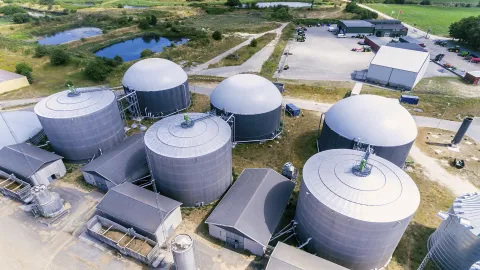At YITHackathon at Jamk University of Applied Sciences, new ecological materials were sought that would effectively bind dust particles during the surface treatment of gravel roads or form a binding layer on the surface of the road. The materials were not allowed to be hazardous to groundwater or the environment.
Gravel road dust binding is currently achieved with salts, the use of which is trying to be reduced due to their environmental impact. The salts used in road maintenance can additionally accelerate vehicle corrosion. As a result of climate change, gravel roads have become drier, leading to greater challenges related to dust on the roads. The need to treat the roads has also increased.
Wood sawdust works without chemicals
Individual alternatives to the substitute for salts have been available, but their widespread use has not yet been possible. For example, lignin-based by-products produced in forest industry processes, microfiber cellulose extracted from sugar beet fibre, and starch-based materials have previously been tested for dust control.
Montinutra Oy, the winner of the innovation competition, also proposed a solution based on utilising the side streams of the forest industry. The raw material in the solution is wood chips, which are rein the process.
"Montinutra's solution was the best response to YITHackathon's challenge. It is possible to start piloting and further developing the cooperation immediately. Montinutra's solution is highly ecological and functional from the perspective of the circular economy. With their solution, dust suppression on gravel roads can be carried out completely without chemicals," says Timo Paavilainen, Technical Director of Maintenance at YIT. "Several good solution proposals were received, of which Bang & Bonsomer group and Metsäväylä Oy received honorable mentions. We also want to take the cooperation forward with them."
"The Hackathon concept is a great way to intensively develop ideas. Winning was partly surprising because the competition was tough. We look forward to working with YIT," says Technology Manager Pertti Tiitola from Montinutra.
The final contestants of the innovation contest were Montinutra Oy, LignoSphere Company, Metsäväylä Oy, Ekopine Oy and Bang & Bonsomer Group Oy. The Hackathon was organised by the Jamk University of Applied Science’s Bioeconomy Business Accelerator, BioPaavo, together with Kasvu Open.
"The cooperation with BioPaavo and Jamk has gone very well. YITHackaton has surprised us positively and exceeded our expectations. This is the first project of this kind for us, and we have got a lot out of the cooperation with the help of competent and committed staff," says Timo Paavilainen.
The Bioeconomy Business Accelerator for Saarijärvi (BioPaavo) project is implemented by the Bioeconomy Institute of Jamk University of Applied Sciences and is funded by the Regional Council of Central Finland with the support of the European Regional Development Fund, as well as sitra and the City of Saarijärvi.
More info on:
Annimari Lehtomäki, Chief Specialist, Jamk University of Applied Sciences, tel. +358 50 464 2563, [email protected]
Timo Paavilainen, Technical Director, Maintenance, YIT, tel. +358 40 0569 106, [email protected]
Pirita Tiusanen, Communications Manager, YIT, tel. +358 44 240 9822, [email protected]



